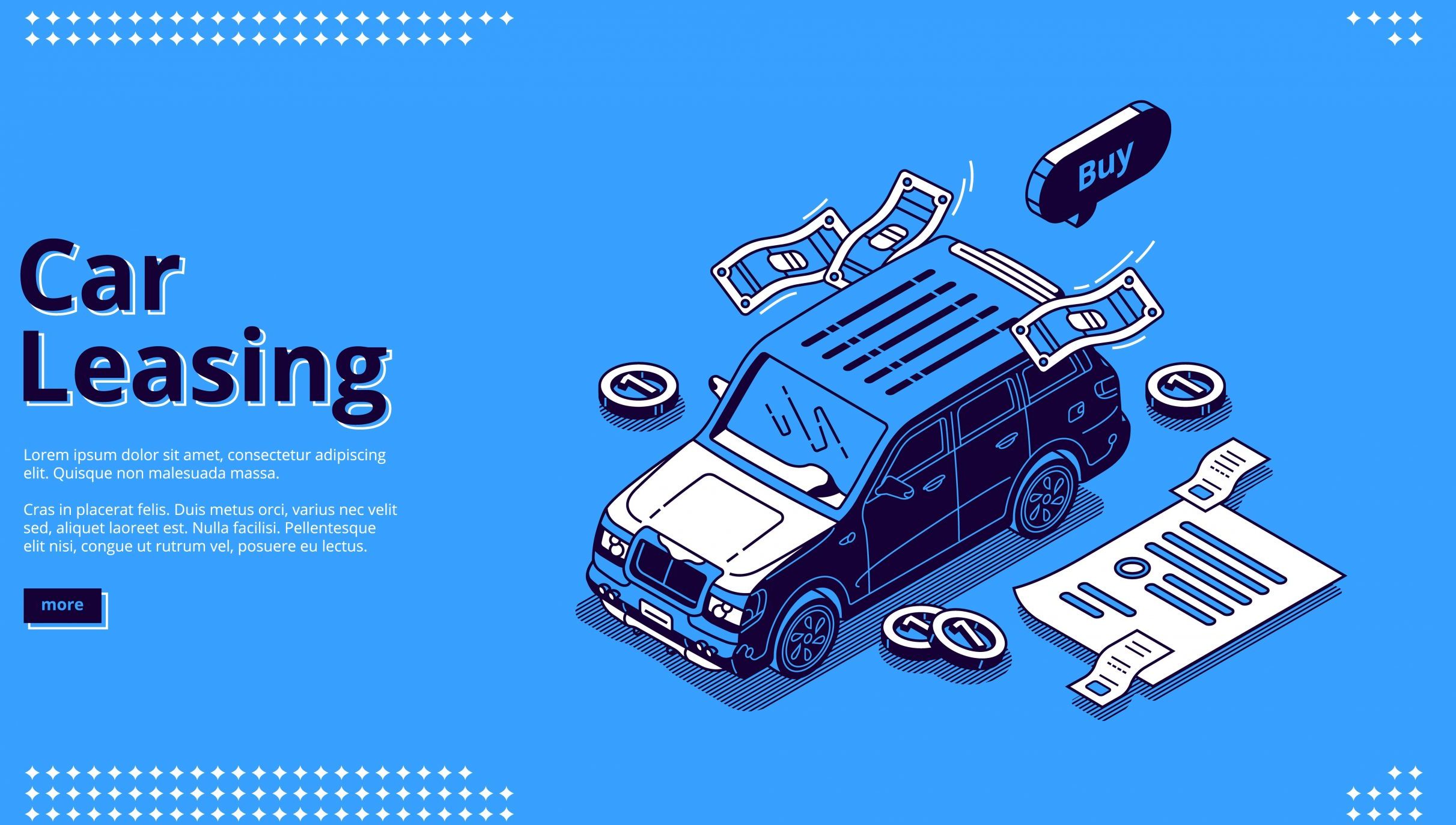Three Strategies for Making a Profit Out of Your Lease (PDF)

Automotive finance companies possess a remarkable knack for foreseeing the residual value of leased vehicles, which signifies the car’s estimated worth at the lease’s conclusion. Their precision in this regard is essential, as the residual value forms the foundation for lease calculations. However, the ever-fluctuating market dynamics can sometimes lead to a situation where certain cars surpass their predicted residual value. The COVID-19 pandemic served as a prime example of such a shift.
The convergence of semiconductor chip shortages and supply chain disruptions over the past few years propelled used car prices to unprecedented heights. This, in turn, triggered a shift in consumer demand, creating a scarcity of pre-owned vehicles and putting dealerships in dire need of inventory. Consequently, the vehicle you leased which is nearing the end of its lease term might have a higher value than initially anticipated, according to experts. The encouraging news for lessees is that this trend is unlikely to change significantly in the near future, as the supply of used vehicles is expected to remain tight for the next few years, which will likely sustain high prices, as Caldwell suggests.
Given this backdrop, your first step is to ascertain whether your current leased vehicle has any equity. The residual value, which is also the price at which you can buy the car at the end of the lease, should be compared with the car’s current market value. If the current value exceeds the residual amount, you stand to profit from the finance company’s underestimation. Conversely, if the car’s worth is less than the residual amount, you can return it without incurring any additional expenses.
Which Finance Companies Allow Lease Buyouts?
It’s important to note that this strategy may not be feasible for everyone. Several automotive finance arms do not permit third-party buyouts of leased vehicles, and this list has expanded in recent years. Brands such as Acura, BMW, Honda, and General Motors modified their rules in 2021 to prohibit the sale of leased vehicles to third-party buyers. In these cases, you can get your vehicle appraised through Diminished Value of Carolina to obtain an independent valuation, but you won’t be able to redeem the offer at one of the participating dealerships. In such situations, your remaining options would be to take your vehicle to any dealership of the same brand or purchase it directly from the lease company. Refer to steps two and three below for further details.
Please be aware that rules in this area are subject to constant change, so it’s advisable to confirm with your leasing company to understand your options fully. Additionally, in some cases where third-party buyouts are restricted (e.g., Audi and Volkswagen), exceptions may be made if the buyer is a dealership rather than an individual. Therefore, always review the fine print for clarity on your options.
Automotive Finance Companies with Restrictions on Third-Party Lease Buyouts:
- Audi Financial
- Acura Financial
- BMW Financial Services
- Ford Credit
- GM Financial
- Honda Finance
- Hyundai Motor Financial
- Infiniti Financial Services
- Kia Motors Finance
- Lincoln Credit
- Mazda Credit
- Mercedes-Benz Financial
- Nissan Motor Acceptance
- Southeast Toyota Financial
- Tesla
- Volkswagen Credit
- Volvo Financial
Automotive Finance Companies with No Significant Restrictions on Third-Party Lease Buyouts:
- Chrysler Capital;
- Mitsubishi Motors Credit of America;
- Toyota Financial Services;
Determining Equity in Your Lease
If you want to capitalize on potential equity, start by visiting DVC’s car appraisal page. There, you can obtain the trade-in and private-party values of your car. You’ll also have the option to receive an instant offer for your vehicle, providing a solid reference point for comparison.
Next, locate the residual value in your lease contract. Subtract the residual value from the trade-in value; this will give you an approximate idea of the equity you may possess. Demonstrating knowledge of your leased car’s current market value and pricing trends will bolster your negotiating position when dealing with dealerships.
If your lease is still a year or more away from its term’s conclusion and you wish to assess your current equity, reach out to your leasing company and inquire about a buyout price. Subtract this buyout price from your car’s current market value to gauge your equity.
3 Strategies to Monetize Your Equity
If you discover equity in your leased car, here are three ways to transform it into cash. Please note that these strategies may not apply universally.

Sell Your Leased Car and Receive a Payment
The quickest route to sell your leased vehicle is to obtain an instant offer. By providing a few details about your vehicle, you can promptly receive a competitive price for your car, which can be paid out on the same day. It’s important to note that not all leased vehicles will have equity, so keep an eye on their market value as your lease return date approaches.
CarMax, a used car superstore, offers another avenue to leverage equity from your leased vehicle. In most cases, you can sell your leased vehicle to CarMax much like any other financed car. CarMax will appraise your car or truck, contact the leasing company for a payoff quote, and facilitate the process of extracting any equity you may have.
Alternatively, you can take your car to any dealer, not necessarily the one where you arranged the lease, and allow them to purchase the vehicle at the trade-in price. The dealer will settle your outstanding lease balance with the leasing company and issue you a check for the equity. However, expect a delay in receiving the funds through this method; the dealership will mail you a check after securing a clear title and ensuring that your car has no outstanding issues like parking tickets. To safeguard your interests, request a written trade-in agreement specifying the amount due to you.
Sell Your Leased Car Privately
This approach entails selling your leased car to a trusted neighbor, friend, or family member. Trust is key in this method, so it’s advantageous to transact with someone you know. However, you can sell to any buyer you find, and you’ll be able to fetch a private-party price, which is higher than the trade-in value offered by dealerships.
Here’s how it works: Once you find a trusted buyer, have them send a check for the buyout amount to the leasing company. Upon receiving the title (the leasing company will typically send it to the person leasing the car), sign it to relinquish your interest in the vehicle, and hand the title over to the buyer. The buyer can then register the car and pay sales tax as required. Be cautious, though: if the buyer delays registration for more than 10 days, the state may attempt to levy sales tax on both parties, eroding your profit.
To prevent this scenario, the Auto Club of Southern California suggests promptly settling the sales tax and DMV fees and then visiting the DMV with the title in hand to finalize the transaction, known as a “lease buyout transfer.” Contact your state’s DMV for precise details.
Use Equity as a Down Payment for Your Next Car
In this scenario, the equity in your current car serves as a cash down payment for your next vehicle. Once you confirm the presence of equity, you can take your car to any dealer to initiate a new lease or purchase agreement. Given the current favorable used car prices, this equity can help mitigate the impact of buying or leasing a new vehicle, especially considering that a significant portion of today’s car shoppers are paying above the manufacturer’s suggested retail price (MSRP). Not all dealers will offer the same amount for your leased car buyout, so it may be necessary to shop around for the best offer.
Dianne Whitmire, Fleet and Internet Director for West Coast Toyota in Long Beach, California, often utilizes the equity from returned lease cars to assist her customers in various ways. She cites a scenario where a customer had two cars: one was a leased vehicle with equity, and the other was a purchased car with a loan balance exceeding the car’s value. In such cases, one transaction could offset the other, allowing the customer to pay off the loan. Experts suggest that you might receive a better offer if you stick with the same brand when selling, although any dealership can handle the transaction.
It’s essential to ensure that all financial details align. Agree on the precise equity amount and verify that it appears in the down payment section of the contract. Alternatively, you can use the equity to cover the fees associated with initiating a new lease rather than paying them out of pocket. Additionally, if your state permits a trade-in vehicle to reduce sales tax, consider discussing the best approach with the dealership. For more information on states that allow this, refer to this article.





